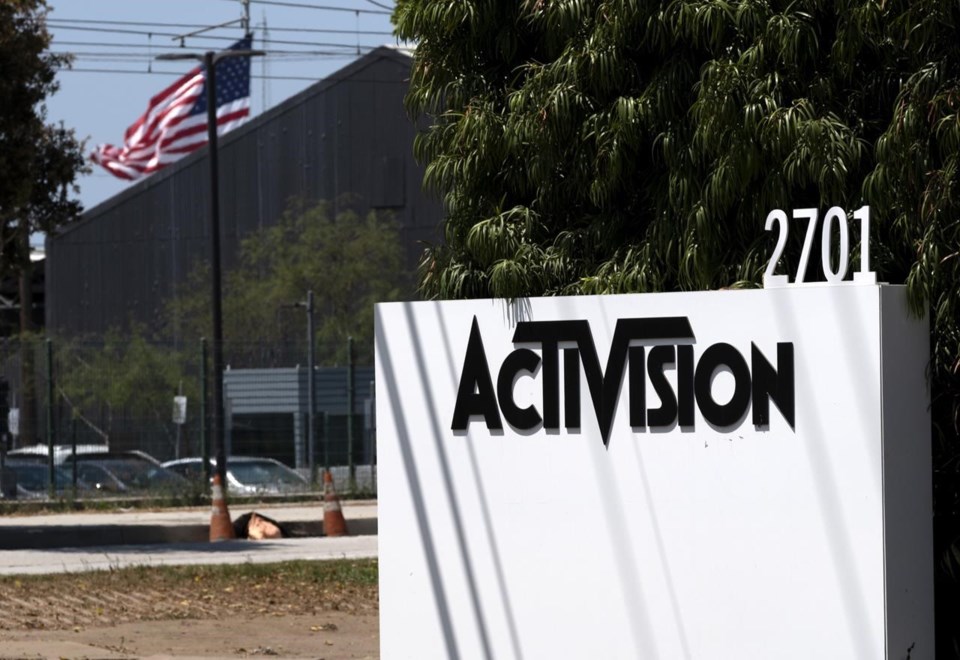Microsoft has completed its acquisition of video game-maker Activision Blizzard for US$69 billion, closing one of the most expensive tech acquisitions in history that could have repercussions across the video game industry.
The notice that the deal has gone through came seven hours after Microsoft got final approval from Britain’s competition watchdog, which reversed its earlier decision to , removing the last obstacle for the transaction.
Taking over the studios behind blockbuster games like Call of Duty, Diablo and Overwatch will be a boost for Microsoft’s Xbox gaming console, which ranks third in sales behind PlayStation and Nintendo. The software giant also has bigger ambitions to fold Activision titles into its multi-game subscription service that works something like a Netflix for video games.
A number of studios in Vancouver make games or underlying technology and software for either Microsoft Corp. (Nasdaq:MSFT) or Activision Blizzard Inc. (Nasdaq:ATVI), which are poised to merge into one massive entity in an acquisition worth nearly $100 billion. Microsoft plans to acquire Activision Blizzard for US$68.7 billion ($91 billion Canadian).
Whether that will be good or bad for Vancouver studios that make products for either Microsoft or Activision remains to be seen.
Vancouver’s The Coalition makes the blockbuster console game Gears of War, which is exclusive to Microsoft’s Xbox and Windows platforms.
Demonware, a subsidiary of Activision, is headquartered in Ireland but has a studio in Vancouver. It doesn’t make games but provides underlying technology like matchmaking used in multiplayer online games like Call of Duty. Treyarch Corp. has a Vancouver studio that works on Activision’s Call of Duty.
“Obviously, we would hope that the merger would result in more opportunity for the two companies together,” Jayson Hilchie, president of the Entertainment Software Association of Canada (ESAC), told BIV in August.
The video game sector in Canada grew by 35 per cent between 2019 and 2021 to 937 companies, according to a survey by ESAC. The industry contributed $5.5 billion to Canada’s GDP, the association estimated, and directly employed 32,300 Canadians. In B.C., gaming employment grew by 19 per cent to 8,700 jobs.
The association has not updated its survey for 2023, but Hilchie said indicators are that the sector is holding up well.
“We do think there’s been some growth [since 2021],” he said. “So far everything seems to be quite stable.”
—With files from Nelson Bennett



